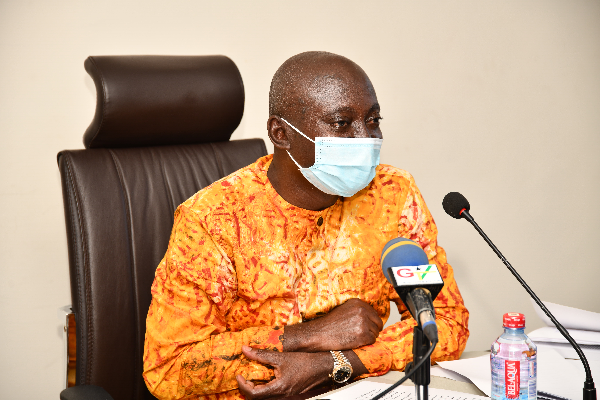The Minister of Works and Housing, Mr. Samuel Atta Akyea, has said the coronavirus disease (COVID-19) pandemic has worsened Ghana’s housing deficit, which stands at over two million units.
He said the pandemic had also awakened the country to the realities of challenges in the housing sector.
The minister, who said this at a forum to commemorate this year’s World Habitat Day in Accra yesterday, added that 10 million out of the country’s 30 million population did not have decent homes.
He, however, said there were measures by the government to address the challenges in the long term and mentioned a national housing policy implementation plan and a credible mortgage regime as some of the interventions to address the housing needs of income groups.
According to him, financing was one of the major bottlenecks facing housing delivery in the country, and that the global pandemic had resulted in a significant reduction in financing available to developing economies.
“The COVID-19 has brought the housing paradox into sharp focus at a time when people are in urgent need of shelter but the houses are not available. A social housing scheme for the disadvantaged is now imperative and we must find some financial space for that,” Mr. Atta Akyea said.
Habitat Day
The UN has designated the first Monday of October every year as World Habitat Day.
This year’s celebration was on the theme: “Housing for all: A better urban future”.
It provides an occasion for stakeholders to reflect on the state of towns and cities and the right of all to adequate shelter.
It is also used to remind the world that all citizens have the power and the responsibility to help shape the future of cities and towns.
Significance
Mr. Atta Akyea said the event presented an opportunity for stakeholders to engage in global and national discussions on the transformative impact of the COVID-19 on the housing sector and explore how to build better societies by leveraging the role of housing as a catalyst for the progressive delivery of human rights.
He said it was obvious that without access to decent housing, adhering to COVID-19 protocols, such as social distancing, use of running water for frequent handwashing and keeping good sanitation, would be a challenge.
The minister said due to rapid urbanisation, 48 per cent of Ghana’s population lived in urban communities, with a substantial proportion of the people living in slums in very bad sanitary conditions.
The UN Resident Coordinator, Mr. Charles Abani, also described the event as a unique opportunity to reflect on the state of towns and cities.
He said it was a global reminder to the fact that adequate shelter was a fundamental human right.
He said the COVID-19 pandemic had shown that cities and governments around the world could move to reduce inequalities and poverty levels and provide access to adequate housing for all.
“The degree of access to basic services, such as water, sanitation, health, education and electricity, is linked to the prevalence of stress and unhealthy living conditions and also contribute to poor health among the vulnerable,” he said.
The ministries of Environment, Science, Technology and Innovation and Local Government and Rural Development joined the forum virtually to outline their contribution to decent housing in the midst of the COVID-19.
Source: Graphic Online





